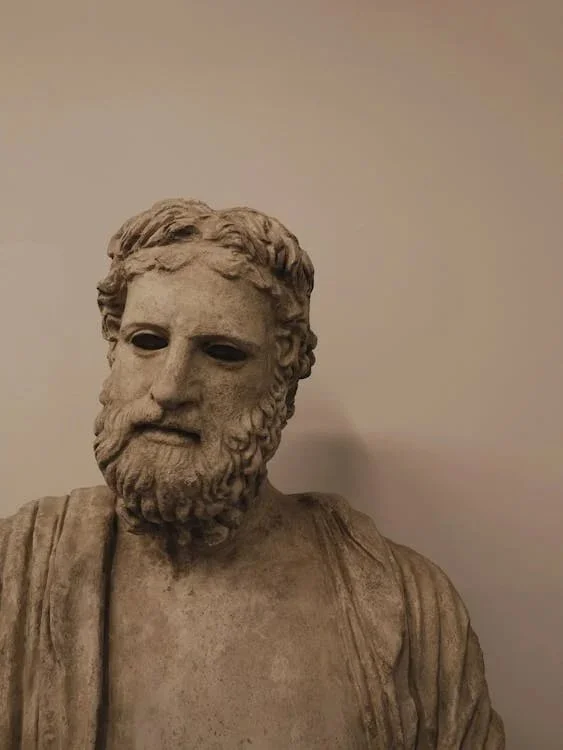R E V I S E D
Photo by Ekaterina Astakhova
“Education is the kindling of a flame not the filling of a vessel.” —Socrates
By Sterling M. Hawkins, MSW, LCSW-C, LICSW
The goal of education is to help people develop their potential, learn to think critically and contribute to society. Several months ago, I was forced to re-examine the role that education has played in my life. I asked myself if I had achieved these goals, and my answer was “Yes.”
Personally I believe that I had. In fact, others were able to reaffirm my observations without bias. The avenues that allowed me to pursue a formal education as a young adult are different now that I am old. I would learn this in an attempt to climb the final rungs on the academic ladder in the pursuit of a doctoral (EdD) degree. The lessons were swift and steep. I learned several things post-enrollment through experience that my academic advisor never prepared me for. I learned that academic success can exact a greater price in old age than when one is young. And that some of the costs associated with learning undermine learning itself.
For example, I learned that I had given up a lot already, having entered retirement, by returning to the virtual classroom. I had given up a modest client caseload, time with my wife, and finances that would have gone toward things more tangibly gratifying with immediate utility or return on my investment. I had shelved a couple of hobbies with the hope that if my program progressed satisfactorily, I could resume where I left off. And that the education I had gained (had I continued in the program) would make up for any losses.
I learned that the program, as it is structured, would fail to teach me what is most important in this season of life. This objective was not a part of my course curriculum. What began as a three-year graduation window soon became five once I was made aware of the volume of work that would be required of me. I managed satisfactorily in the beginning but quickly became overwhelmed with the pace of the condensed schedule to complete two courses simultaneously per eight-week term. One would be challenging but doable. Two proved destructive and unsustainable. Choosing to drop one class and continue with the other would have extended my time and my costs. Outcomes for which I was unprepared. Given this difficult choice, I elected to withdraw from the program. I rationalized that my love for education would not be rewarded under such conditions as in the past.
I learned that for education to hold value for me in old age, it would need to have the potential to improve the lives of others, including my own. The short-term sacrifice for long-term reward is no longer logical and needs to be revised. To voluntarily make sacrifices only to encounter other unforeseen losses that may be irreparable seems pointless. The short-term sacrifice (5 years ) in my mid-sixties compared to similar sacrifices in my mid-twenties became long. And the rewards at seventy would be short. Therefore, I made the difficult decision to revise my goals while expanding my definition of what life-long education has now become.
You have heard it said that there are two types of education—formal and informal. For most of my life, I valued traditional (formal) classroom education (including virtual learning) over informal, less structured experiential education. While quick to acknowledge the valuable role informal education can play in life, I’ve undervalued it in my own life.
Author and commentator David Brooks has a name for informal education. He refers to it as The Other Education. He writes— “We don’t usually think of this second education. For reasons having to do with the peculiarities of our civilization, we pay a great deal of attention to our scholastic educations, which are formal and supervised, and we devote much less public thought to our emotional educations, which are unsupervised and haphazard. This is odd since our emotional educations are much more important to our long-term happiness and the quality of our lives.” (Brooks, 2009)
I believe my emotional education is also more important to the long-term happiness of others who walk alongside, behind, or in front of me. As a therapist, I know this, but I couldn’t see it in myself. I have only become aware of it retrospectively. In the words of George Whitman (1913-2011) , All the world is my school and all humanity is my teacher.” My takeaway from this experience is that education is not intelligence but is about helping, supporting, and giving guidance wherever it is welcomed. So that others can benefit whenever it is useful. Wisdom is shown not only in what we study but how we live. Wisdom is about the whole of life and not just what we know but how we apply our knowledge. In the words of Socrates, how we “kindle the flame.”
I am already engaged in such education and now feel empowered to do more. The clarity of my experience is liberating and has opened up possibilities to think, feel, and act more in tune with my core values and to experience richer and deeper relationships with those I educate and those who educate me.
___________________________________________________
References:
The Other Education. (2009, November 26). New York Times.
